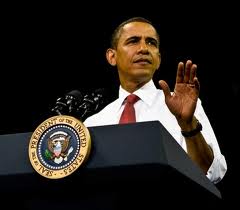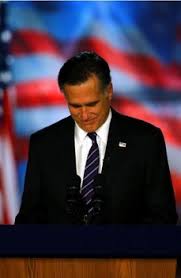
The historical roots of Obama’s foreign policy
A common Republican criticism of Barack Obama is that he has been a weak foreign policy president who has little regard for American ideals. Obama ‘has responded with weakness to some of the gravest threats to our national security this country has faced’, charged the 2012 Republican platform. Mitt Romney accused Obama of starting his presidency with ‘an apology tour’. Republican rising star Marco Rubio says Obama wants ‘to make America more like the rest of the world, instead of helping the world become more like America’.
Yet, an examination of the history of US foreign policy and the ideas which influenced it shows that far from being a radical departure from the American norm, Obama’s worldview fits with a historical tradition.
In fact, he sounds much like an early statesman.
Stefan Halper, professor of International Relations at Cambridge and a former adviser to several presidents, argues that US foreign relations have historically been influenced by what he terms ‘Big Ideas.’ Their starting point is the belief in American exceptionalism, the umbrella concept from which all other ideas flow – ranging from the early 19th century Monroe Doctrine to the Bush Doctrine and democracy promotion.

Presentation or policy? The Republican Party has a problem
The Republican Party believes that its loss in last year’s presidential election was primarily a failure of presentation rather than policy.
In particular, the GOP’s heavy losses amongst minority groups – African Americans, Asian Americans, Latinos – has prompted the party to try to broaden its appeal to take account of America’s changing demographics. Its poor performance with the Latino population has informed the Republican leadership’s decision to support a comprehensive immigration reform bill (co-sponsored by the Florida senator and widely tipped 2016 Republican presidential candidate Marco Rubio). Barack Obama’s capture of 71 percent of the Latino vote was widely attributed to harsh rhetoric against illegal immigrants during the Republican primaries, including Mitt Romney’s promise to make them self-deport. The Republican establishment believes, therefore, that immigration reform is the gateway issue to begin a conversation with Latinos and other minority groups. Be more welcoming to immigrant communities, the argument goes, and these groups will become natural followers of the GOP’s message of limited government. The conservative columnist Charles Krauthammer, for example, argues that Latinos are naturally socially conservative and favour smaller government.
However, the evidence suggests that the Republican Party’s fundamental problem is its political philosophy. The GOP’s strident anti-government message does not appeal to the constituencies which it needs to win presidential elections.










